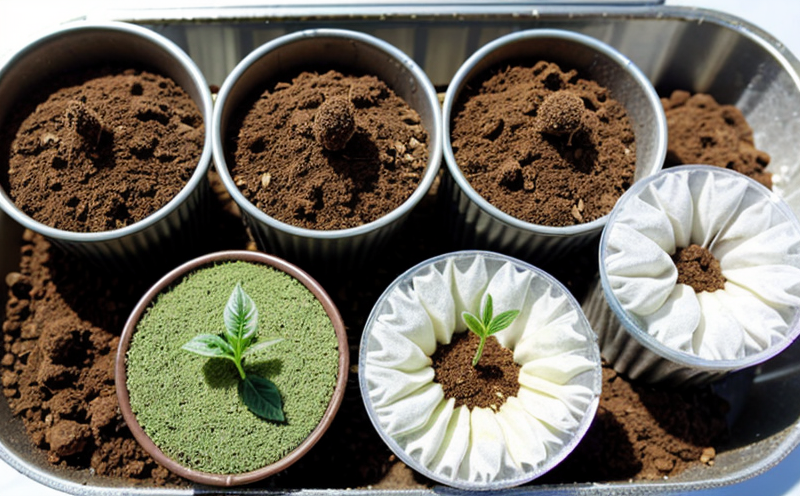Hydro-Priming Effectiveness Testing in Seeds
The process of hydro-priming is a pre-sowing treatment that hydrates seeds to simulate conditions found during natural germination. This treatment can enhance seed viability and improve the overall performance of crops, leading to better yields and more robust plants.
In this service, we conduct comprehensive testing to evaluate the effectiveness of various hydro-priming treatments on different types of seeds. Our goal is to ensure that each seed lot meets the desired quality standards for germination, vigor, and overall performance. The testing process involves several critical steps:
- Seed Selection: We work with a diverse range of crops including cereals like maize (corn), wheat, and rice; legumes such as soybeans and lentils; oilseeds like sunflower and canola; and other specialty seeds.
- Treatment Application: Seeds are treated with different concentrations of water under controlled conditions to simulate the effects of varying environmental factors during natural germination.
- Monitoring Parameters: Key parameters measured include germination percentage, speed, uniformity, and vigor. Additionally, we examine morphological changes in the seeds post-treatment.
- Data Analysis: Advanced statistical methods are used to analyze the data collected from the tests, providing actionable insights for our clients.
Our laboratory adheres strictly to international standards such as ISO 3632-1 and ASTM D5940 to ensure accuracy and reliability of results. Compliance with these standards guarantees that our testing methods are robust and reproducible, which is crucial for meeting regulatory requirements.
| Standard Name | Details |
|---|---|
| ISO 3632-1 | Methods for Seed Testing - Part 1: Germination Tests |
| ASTM D5940 | Standard Practice for Conditioning and Transporting Seeds |
Applied Standards
The testing of seed hydro-priming effectiveness strictly adheres to the following international standards:
| Standard Name | Details |
|---|---|
| ISO 3632-1 | Methods for Seed Testing - Part 1: Germination Tests |
| ASTM D5940 | Standard Practice for Conditioning and Transporting Seeds |
Industry Applications
The results of hydro-priming effectiveness testing are critical for several stakeholders within the agricultural sector:
- R&D Engineers: Understanding how different treatments affect seed germination can lead to innovative crop varieties that perform better in various environmental conditions.
- Quality Managers: Ensuring consistent quality across batches of seeds is essential for maintaining brand reputation and regulatory compliance.
- Compliance Officers: Meeting international standards ensures that products meet legal requirements, which can prevent costly recalls or penalties.
- Procurement Professionals: Reliable data on seed performance helps in selecting the best suppliers who offer high-quality seeds suitable for specific growing conditions.
Customer Impact and Satisfaction
The accurate testing of hydro-priming effectiveness directly impacts customer satisfaction by ensuring that only top-performing seeds are delivered. This service not only enhances the performance of agricultural products but also contributes to sustainable farming practices:
- Improved Yield: By enhancing seed viability, we help farmers achieve higher yields.
- Sustainability: The use of high-quality seeds leads to more efficient resource utilization and reduced environmental impact.
- Compliance: Ensuring that products meet international standards helps avoid legal issues and maintains a good standing in the market.





